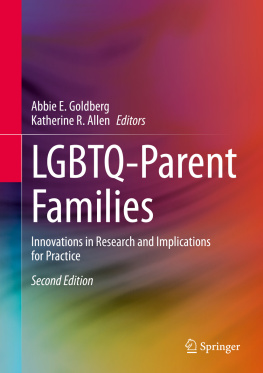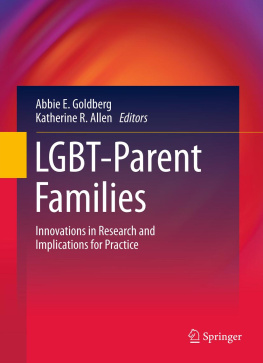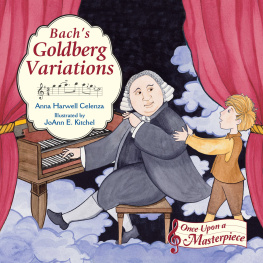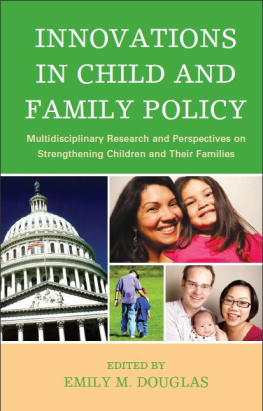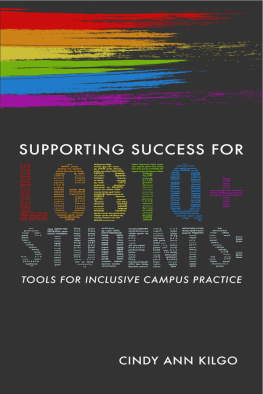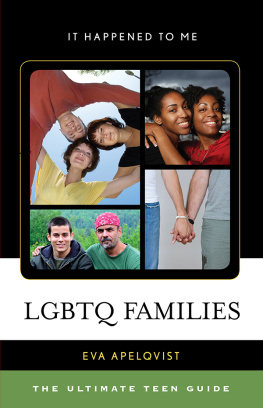Abbie E. Goldberg - LGBTQ-Parent Families: Innovations in Research and Implications for Practice
Here you can read online Abbie E. Goldberg - LGBTQ-Parent Families: Innovations in Research and Implications for Practice full text of the book (entire story) in english for free. Download pdf and epub, get meaning, cover and reviews about this ebook. year: 2020, publisher: Springer Nature, genre: Home and family. Description of the work, (preface) as well as reviews are available. Best literature library LitArk.com created for fans of good reading and offers a wide selection of genres:
Romance novel
Science fiction
Adventure
Detective
Science
History
Home and family
Prose
Art
Politics
Computer
Non-fiction
Religion
Business
Children
Humor
Choose a favorite category and find really read worthwhile books. Enjoy immersion in the world of imagination, feel the emotions of the characters or learn something new for yourself, make an fascinating discovery.
- Book:LGBTQ-Parent Families: Innovations in Research and Implications for Practice
- Author:
- Publisher:Springer Nature
- Genre:
- Year:2020
- Rating:3 / 5
- Favourites:Add to favourites
- Your mark:
- 60
- 1
- 2
- 3
- 4
- 5
LGBTQ-Parent Families: Innovations in Research and Implications for Practice: summary, description and annotation
We offer to read an annotation, description, summary or preface (depends on what the author of the book "LGBTQ-Parent Families: Innovations in Research and Implications for Practice" wrote himself). If you haven't found the necessary information about the book — write in the comments, we will try to find it.
LGBTQ-Parent Families: Innovations in Research and Implications for Practice — read online for free the complete book (whole text) full work
Below is the text of the book, divided by pages. System saving the place of the last page read, allows you to conveniently read the book "LGBTQ-Parent Families: Innovations in Research and Implications for Practice" online for free, without having to search again every time where you left off. Put a bookmark, and you can go to the page where you finished reading at any time.
Font size:
Interval:
Bookmark:
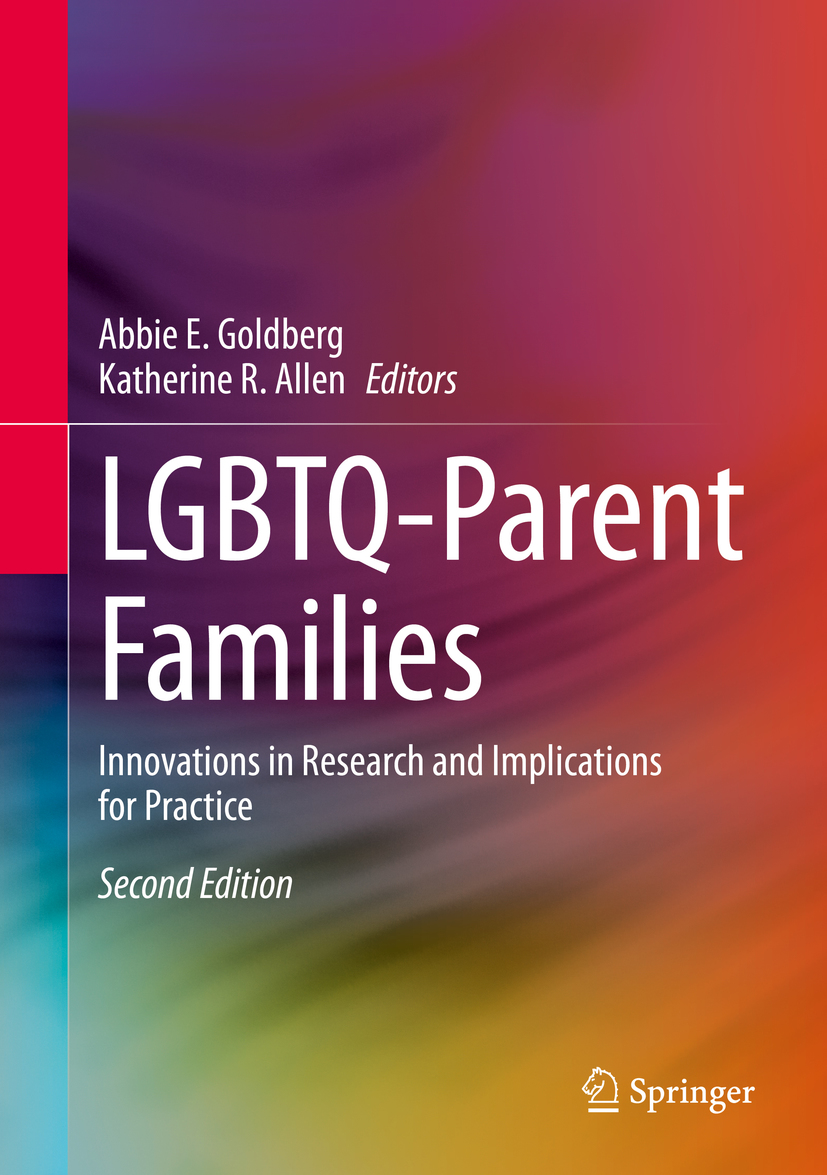

This Springer imprint is published by the registered company Springer Nature Switzerland AG
The registered company address is: Gewerbestrasse 11, 6330 Cham, Switzerland
Dedication
To the pioneers of LGBTQ-parent family scholarship, the emerging generation of new scholars, and our students
Since the first edition of this book was published in 2013, there has been a significant expansion in the range and depth of research on LGBTQ-parent families. Many of the topics covered in the first editionfor example, gay fathers and surrogacy, bisexual parents, transgender parents, race and ethnicity for sexual minority parents and their children, and research methods with LGBTQ populationshave been the subject of increased scholarly attention, warranting updated and expanded coverage. Furthermore, various topics that were not covered in the first edition have emerged as important research areasfor example, poverty in LGBTQ-parent families, LGBTQ-parent families and health, LGBTQ foster parents, religion and LGBTQ-parent families, and siblings and family of origin relationshipsdemanding inclusion in this edition. Indeed, of the 30 chapters in this book, 12 are devoted to topics that were not included in the first edition. The remaining 18 chapters have been substantially revised and updated to reflect growth in the field.
As in the first edition, all of the chapters in this second edition aim to address intersectionality and context. What this means, in action, is that the chapter authors aim to highlight research that explores sexual orientation in concert with other key social locations and identities, including gender, race, class, and nationality. In addition, the authors have sought to explicitly acknowledge and ideally explore the range of sexual identities and genders within and beyond LGBTQ. In some cases, as in the chapters on asexuality and immigration, the research is very much in its infancyand, in turn, the authors must present the general research on asexuality and immigration, respectively, propose its relevance for LGBTQ-parent families, and also highlight and make predictions about relevant directions for further research. Another new feature of this second edition is that all authors explicitly aimed to expand their coverage of international research, thus capturing the field of LGBTQ-parent families across diverse nations and cultures. Finally, all of the chapters in the second edition attend to the theoretical frameworks evident in the body of work associated with their topics.
The book begins with overview chapters that cover topics that have received the most scholarly attention. These chapters address the research on LGBTQ parenting in the context of family building route (parenting post-heterosexual divorce and separation, donor insemination, adoption), as well as how LGBTQ parenting intersects with specific identities and social locations (bisexuality, race/ethnicity) and how LGBTQ parents and their families fare in certain broad domains (economic well-being, health). The latter two chapters are new chapters entirely and represent areas of key policy relevance and great public interest.
The book then moves to chapters on relatively understudied topicsnamely, important emerging research areas that have thus far received more limited attention. These chapters cover LGBTQ-parent families in the context of their route to parenthood (surrogacy, foster parenting) and their relational, sexual, and gender identities (polyamory, asexuality, trans parents). Some chapters address key social locations that intersect with LGBTQ parenting (religion, immigration), as well as important intergenerational relationships in the lives of LGBTQ parents and their families (LGBTQ parents and LGBTQ children, sibling relationships). Some chapters focus explicitly on contextual factors in LGBTQ-parent families (workplace, schools, community context, non-Western geographic regions). Finally, two new chapters focus on difficult and even painful transitions in the lives of LGBTQ-parent families (separation and divorce, loss and death of a child). The inclusion of these last two chapters is an important marker of the fields growth. That is, individual scholars and the field of LGBTQ parenting as a whole are now willing to engage with truly difficult and once invisible topics that may occur within LGBTQ-parent families, without fear that acknowledging and addressing such challenging issues will only further stigmatize the LGBTQ community.
The book also addresses applied topics to aid scholars and practitioners in focusing on legal, clinical, and educational concerns relevant to LGBTQ-parent families. Namely, we include a set of chapters that address LGBTQ-parent families and the law, clinical work with LGBTQ parents and prospective parents, clinical work with children of LGBTQ parents, and pedagogy and LGBTQ-parent families. A final set of chapters focuses on the growing sophistication of research methodology in the study of LGBTQ-parent families. Specifically, these chapters address multilevel modeling approaches to quantitative dyadic data analysis, the use of multiple qualitative approaches in studying the complexity of LGBTQ-parent families, the expansion of representative datasets relevant to the study of LGBTQ-parent families, and methods, recruitment, and sampling issues, particularly with the novel options increasingly available through social media in LGBTQ-parent family research.
Much has happened since 2013or, really, 2012when the first edition went to press. In 2012, marriage equality was not yet a federal reality across the United States. No US states or territories banned conversion therapy. The World Health Organization (WHO) regarded being transgender as a mental illness. As of this writing, marriage equality is a reality across the United States, 20 US states and territories have banned conversion therapy, and the WHO has stopped classifying trans people as mentally ill. Yet these favorable changes have been accompanied by changes that are widely regarded by LGBTQ community members, activists, and researchers as quite negative. For example, the current US presidents administration has proposed many pieces of legislation that severely curtail the rights and freedom of LGBTQ people in areas as diverse as the military to public accommodations to adoption. The United States has also seen escalating violence against trans peopleespecially trans women of color. And beyond the United States, same-sex relations are often criminalized: indeed, 69 countries currently criminalize gay sex (Greenhalgh, 2019).
Font size:
Interval:
Bookmark:
Similar books «LGBTQ-Parent Families: Innovations in Research and Implications for Practice»
Look at similar books to LGBTQ-Parent Families: Innovations in Research and Implications for Practice. We have selected literature similar in name and meaning in the hope of providing readers with more options to find new, interesting, not yet read works.
Discussion, reviews of the book LGBTQ-Parent Families: Innovations in Research and Implications for Practice and just readers' own opinions. Leave your comments, write what you think about the work, its meaning or the main characters. Specify what exactly you liked and what you didn't like, and why you think so.

